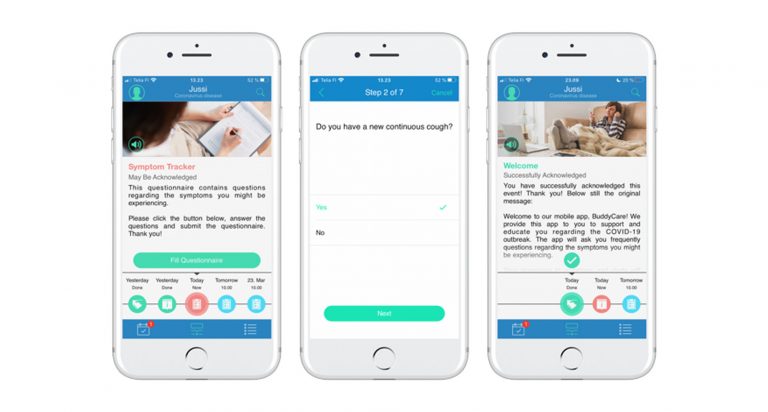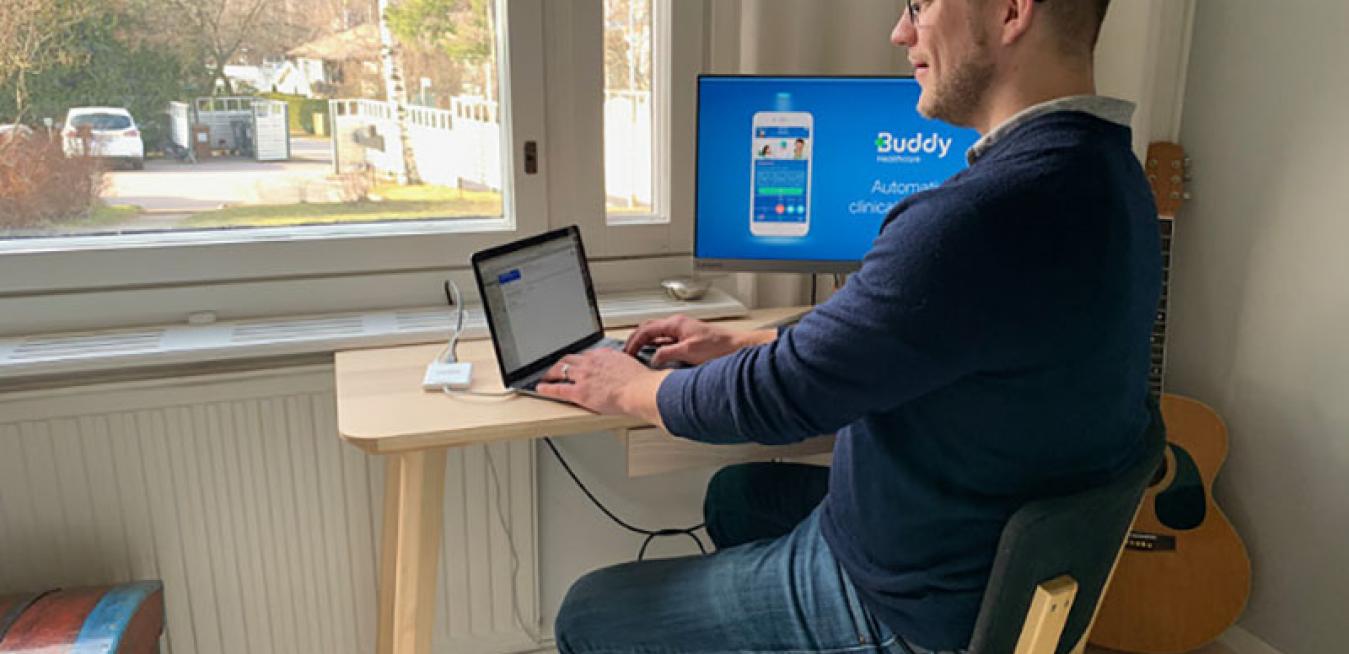A month ago, Jussi Määttä didn’t think he would be part of the fight against COVID-19, the disease caused by the novel coronavirus. His Helsinki-based company, Buddy Healthcare, makes an app that helps hospitals ensure that patients are taking the necessary steps — like fasting, avoiding blood thinners and doing stretching — before and after surgery. It gives patients reminders and checklists — or pathways — they can access on their phones and doctors can track to make sure patients are preparing for or recovering from a medical procedure the way they are supposed to.
“Initially we made a decision that our platform would be most useful for helping hospitals to take care of the non-COVID-19 patients,” Määttä explains. “If the epidemic continues for a couple of months, hospitals can’t stop treating other patients.”
But in mid-March, when the hospitals he works with started asking if he could tailor the app to COVID-19 patients, Määttä changed course. Hospitals around the world are seeing growing numbers daily of patients who have the disease. Knowing which of those patients should be staying home and who should be in the hospital can be a crucial piece of insight as healthcare providers manage the growing caseload.
Määttä and his team realized the BuddyCare app and virtual care platform could offer a solution. It can give patients a way to track their symptoms at home and check in with doctors regularly, while also helping hospitals reserve their resources for the sickest patients. “Some hospitals are so full of severely ill patients that they don’t have tools to stay in touch with the patient at home; to get feedback, to monitor whether symptoms of the disease have progressed so heavily that patients should be called to the hospital,” Määttä says.
Määttä founded his company in 2016 and moved it to GE’s Health Innovation Village, a campus for health technology startups at GE Healthcare’s headquarters in Helsinki. Located in the Finnish capital’s “Silicon Vallila” district, the village, which launched in 2014, holds about 40 businesses today.
Normally, Buddy Healthcare tailors the app to specific hospitals that have slightly different protocols around its surgeries as well as specific reporting needs based on the distinct medical systems in each country (14 of Buddy’s client hospitals are in Finland and three are in Germany). When Määttä started talking to doctors, he saw the symptoms and progress of COVID-19 are similar enough across populations that his team could create a standard pathway that doctors and patients could apply anywhere.

Top and above: Jussi Määttä (top) and his team adapted its Buddy Healthcare app to help doctors in European hospitals better track patients’ COVID-19 symptoms. The app begins with an initial risk assessment for patients who might be the most vulnerable to being harmed by the virus, with questions concerning age, autoimmune issues, a history of asthma or diabetes, and other topics. “After you have taken an initial assessment, then we have a daily symptom tracker where patients answer a couple of questions like body temperature, and other feelings you have: Do you have pain in your chest? Do you have problems when you are breathing? Do you cough a lot?” Määttä says. Top and above image credits: Jussi Määttä.
Määttä and his 14 employees needed to move quickly. To get a fast start, they signed up for the WirVsVirus Hackathon, a two-day event sponsored by the German government to develop technology solutions to the most pressing problems, from social distancing to patient management, stemming from COVID-19. Over two days, the engineers adapted Buddy’s platform to meet the needs of COVID-19 patients and healthcare providers.
The resulting pathway begins with an initial risk assessment for patients who might be the most vulnerable to being harmed by the virus, with questions concerning age, autoimmune issues, a history of asthma or diabetes, and other topics. “After you have taken an initial assessment, then we have a daily symptom tracker where patients answer a couple of questions like body temperature, and other feelings you have: Do you have pain in your chest? Do you have problems when you are breathing? Do you cough a lot?” Määttä says.
Based on the answers given to the symptom tracker over time, doctors can be automatically alerted if patients start to show more severe signs indicating that they may need to be admitted to the hospital. The hospital can also use anonymized data collected from the app to get a better overview of their patient load and make determinations about allocating resources.
Määttä has found that about 90% of patients whom doctors have asked to use BuddyCare for surgery comply. If those same numbers hold true during the COVID-19 crisis, hospitals could have an easier time managing patient loads.
There are currently three hospitals using the new COVID-19 care coordinating tool, says Määttä, and all are in Finland. He also received interest from abroad. Says Määttä:“It feels good that we have been able to help these hospitals and support doctors to focus on the patients who are in ICU.”





